Cholesterol is a type of fat that the body makes that is important in digesting food. It is also found in some food. Too much cholesterol can increase the chance of heart problems.
There are two different types of cholesterol. For example:
- Low Density Lipoprotein (LDL) can cause damage to the body when there is too much
- High Density Lipoprotein (HDL) does not cause damage.
Most people with high cholesterol have no symptoms.
Too much LDL cholesterol in the body is often called high cholesterol. This can slowly block the arteries (channels that carry blood). When arteries are blocked, less blood can get through to the body's organs. High cholesterol can increase the risk of strokes, kidney and heart problems, or nerve damage.
Recommended healthy choices to prevent and treat high cholesterol:
- Eat a heart-healthy diet . This includes fish, vegetables, fruit, beans, and high-fibre grains and breads.
- Foods with cholesterol should be eaten in moderation. People with diabetes, high blood pressure, kidney failure or heart disease usually need to be careful about how much cholesterol they eat.
- Maintain a healthy weight
- Be active every day or most days
- Reduce or stop smoking. For help, talk to a health care provider, visit nuquits.ca, or call the Nunavut Quitline at 1-866-368-7848.
- Following the Low-Risk Drinking Guidelines for alcohol
- Visit the health centre for annual checkups and get the tests recommended by your health care provider. They may also recommend medicines you can take.
Resources:
High Cholesterol (Nutrition Handout)



